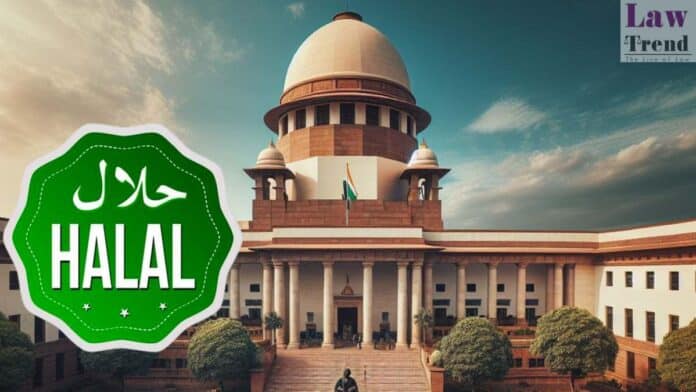In a recent Supreme Court session, Solicitor General Tushar Mehta raised concerns about the widespread application of halal certification to non-meat products, questioning the necessity and impact on prices during the hearing of legal challenges to the Uttar Pradesh government’s ban on halal-certified products. The ban, which has sparked considerable debate, restricts the manufacture, sale, storage, and distribution of products with halal certification within the state.
Justice BR Gavai and Justice AG Masih, overseeing the proceedings, have scheduled the next hearing for the week starting March 24. They emphasized that the petitioners are shielded from coercive actions by earlier court orders and mandated the respondent-Union to distribute copies of its affidavit to the petitioners, who will then have the opportunity to file their rejoinder.
During the hearing, Mehta expressed his astonishment at discovering non-food products such as cement and iron bars labeled as halal-certified. He highlighted the significant financial implications of such certifications, suggesting that certifying agencies have profited immensely. Mehta provocatively questioned the logic behind labeling products like wheat flour and chickpea flour as halal, sparking a broader discussion about the relevance and scope of halal certification beyond meat products.
Responding to the Solicitor General’s arguments, Senior Advocate MR Shamshad, representing the petitioners, defended the comprehensive nature of the halal certification process. Shamshad argued that the Central government’s policy on halal certification encompasses a lifestyle choice that extends beyond dietary preferences to include various production processes.
The discussion also touched on the economic impact of mandatory halal certification for non-Muslims, who may face higher prices due to the limited availability of non-halal certified alternatives. This issue was countered by advocates for the petitioners, who emphasized that purchasing halal-certified products remains a personal choice, not a legal obligation.
The hearing stems from a contentious move by the Uttar Pradesh government on November 18, banning halal-certified products following allegations of fraudulent certification practices aimed at increasing sales within the Muslim community. The ban, applied strictly within the state boundaries to comply with food safety regulations, notably excludes exported products.
In light of the uproar and logistical challenges posed by the sudden ban, the state government offered a 15-day grace period for retailers to phase out halal-certified goods from their inventories. Additionally, specific directives were issued to local manufacturers to recall and repackage products certified by non-accredited organizations.




